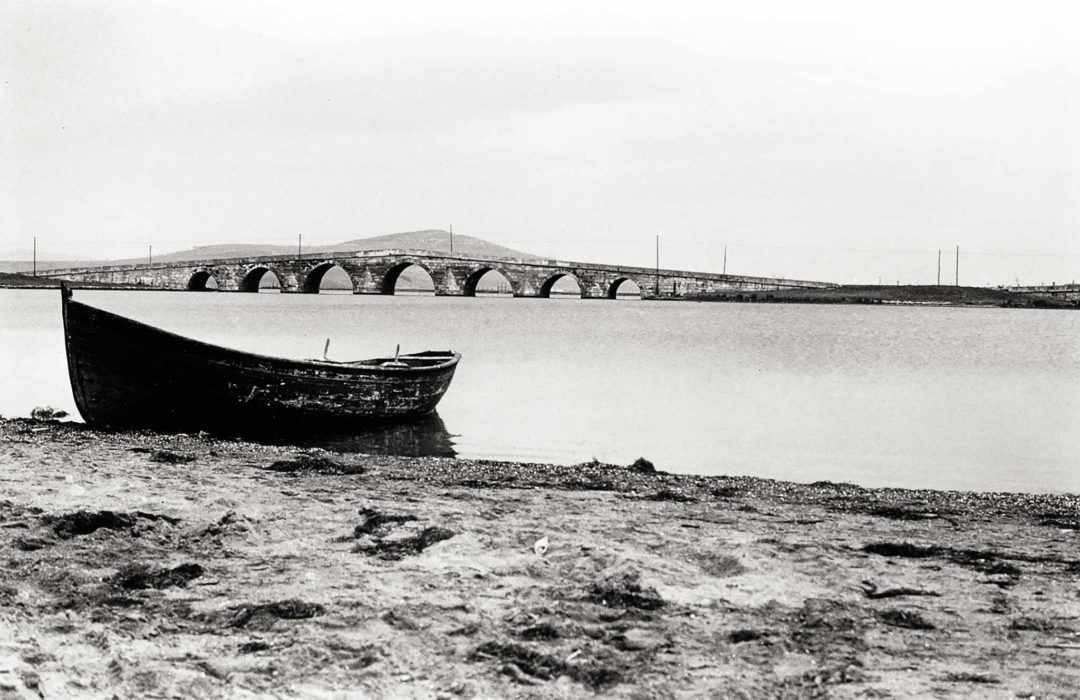“LAY NOT ASIDE THE fear of God, O Kings of the Earth,” Bahá’u’lláh wrote in 1868, “and beware that ye transgress not the bounds which the Almighty hath fixed. Be vigilant, that ye may not do injustice to anyone, be it to the extent of a grain of mustard seed. Tread ye the path of justice, for this, verily, is the straight path.”
During ‘Abdu’l-Bahá’s time in America, he spoke frequently of his father’s incarceration, and how this prisoner had addressed the rulers and kings of the earth. “If we study the historical record,” Abdu’l-Bahá noted, “we will find that none of the Prophets of the past ever spread His teachings or promulgated His Cause from a prison.”
‘Abdu’l-Bahá was only eight years old when Bahá’u’lláh was imprisoned in the Síyáh-Chál, Tehran’s notorious underground dungeon. The family would endure a lifetime of imprisonment and exile, first in Baghdad, then in Constantinople and Adrianople, and finally in the Ottoman prison city of ‘Akká in Palestine.
In 1863 in Baghdad, when ‘Abdu’l-Bahá was almost nineteen years old, Bahá’u’lláh told a few of his followers that he was the latest of God’s messengers. In 1868 in Adrianople he announced it to the world’s major leaders in his Súriy-i-Mulúk, or Tablet of the Kings.

The monarchs Bahá’u’lláh addressed were, for the most part, heads of state churches. They judged the Bible or the Qur’án to be the unerring truth, and interpreted these books to legitimize their political authority. “It is not Our wish to lay hands on your kingdoms,” Bahá’u’lláh told them. “Our mission is to seize and possess the hearts of men.”
Bahá’u’lláh asserted that the power these rulers held came with the responsibility to exercise justice. “God hath committed into your hands the reins of the government of the people,” he stated, “that ye may rule with justice over them, safeguard the rights of the downtrodden, and punish the wrongdoers.”
Then he questioned their priorities. “We have learned that ye are increasing your outlay every year, and are laying the burden thereof on your subjects. This, verily, is more than they can bear, and is a grievous injustice.”
“Compose your differences and reduce your armaments,” Bahá’u’lláh wrote, “that the burden of your expenditures may be lightened, and that your minds and hearts may be tranquilized. Heal the dissensions that divide you, and ye will no longer be in need of any armaments except what the protection of your cities and territories demandeth. Fear ye God, and take heed not to outstrip the bounds of moderation and be numbered among the extravagant.”
Bahá’u’lláh identified military spending as a central cause of poverty, and warned these European and Middle Eastern leaders that their subjects would not long put up with it:
“If ye pay no heed unto the counsels which, in peerless and unequivocal language, We have revealed in this Tablet,” Bahá’u’lláh wrote, “Divine chastisement shall assail you from every direction, and the sentence of His justice shall be pronounced against you. On that day ye shall have no power to resist Him, and shall recognize your own impotence.”
“Have mercy on yourselves,” he pleaded, “and on those beneath you.”
In tomorrow’s feature, Bahá’u’lláh writes letters to Queen Victoria and to the kings of the earth: Napoleon III of France, Czar Alexander II of Russia, Kaiser Wilhelm I of Germany, Emperor Franz Joseph of Austria, Sultan ‘Abdu’l-‘Azíz of Turkey, and Násiri’d-Dín Sháh of Persia.






